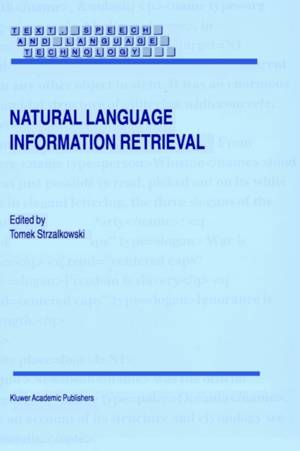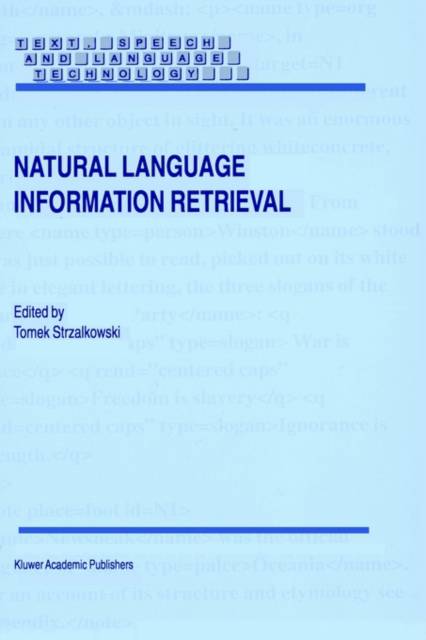
- Afhalen na 1 uur in een winkel met voorraad
- Gratis thuislevering in België vanaf € 30
- Ruim aanbod met 7 miljoen producten
- Afhalen na 1 uur in een winkel met voorraad
- Gratis thuislevering in België vanaf € 30
- Ruim aanbod met 7 miljoen producten
Zoeken
Natural Language Information Retrieval
€ 153,95
+ 307 punten
Omschrijving
The last decade has been one of dramatic progress in the field of Natural Language Processing (NLP). This hitherto largely academic discipline has found itself at the center of an information revolution ushered in by the Internet age, as demand for human-computer communication and informa- tion access has exploded. Emerging applications in computer-assisted infor- mation production and dissemination, automated understanding of news, understanding of spoken language, and processing of foreign languages have given impetus to research that resulted in a new generation of robust tools, systems, and commercial products. Well-positioned government research funding, particularly in the U. S., has helped to advance the state-of-the- art at an unprecedented pace, in no small measure thanks to the rigorous 1 evaluations. This volume focuses on the use of Natural Language Processing in In- formation Retrieval (IR), an area of science and technology that deals with cataloging, categorization, classification, and search of large amounts of information, particularly in textual form. An outcome of an information retrieval process is usually a set of documents containing information on a given topic, and may consist of newspaper-like articles, memos, reports of any kind, entire books, as well as annotated image and sound files. Since we assume that the information is primarily encoded as text, IR is also a natural language processing problem: in order to decide if a document is relevant to a given information need, one needs to be able to understand its content.
Specificaties
Betrokkenen
- Uitgeverij:
Inhoud
- Aantal bladzijden:
- 384
- Taal:
- Engels
- Reeks:
- Reeksnummer:
- nr. 7
Eigenschappen
- Productcode (EAN):
- 9780792356851
- Verschijningsdatum:
- 30/04/1999
- Uitvoering:
- Hardcover
- Formaat:
- Genaaid
- Afmetingen:
- 165 mm x 247 mm
- Gewicht:
- 775 g

Alleen bij Standaard Boekhandel
+ 307 punten op je klantenkaart van Standaard Boekhandel
Beoordelingen
We publiceren alleen reviews die voldoen aan de voorwaarden voor reviews. Bekijk onze voorwaarden voor reviews.










